Long ago a freshwater spring welled up in a tidal saltwater landscape. This strange phenomenon occurred in Dokkum and came to be associated with St Boniface. After the death of St Boniface, the spring became a popular place of pilgrimage. Today the Ice Fountain created as part of the 11 Fountains project marks the spot on the De Markt market square in Dokkum where the abbey church built next to the freshwater spring once stood. The outline of the church can be seen in the paving on the square.
This stage of the Klooster Claercamppad pilgrimage trail takes you to the village of Aalsum, which is built on a mound that dates back to the 7th century. From here you follow a farm track across meadows to the Betterwird business park, named after a grange established by Claercamp monastery.
You …
Long ago a freshwater spring welled up in a tidal saltwater landscape. This strange phenomenon occurred in Dokkum and came to be associated with St Boniface. After the death of St Boniface, the spring became a popular place of pilgrimage. Today the Ice Fountain created as part of the 11 Fountains project marks the spot on the De Markt market square in Dokkum where the abbey church built next to the freshwater spring once stood. The outline of the church can be seen in the paving on the square.
This stage of the Klooster Claercamppad pilgrimage trail takes you to the village of Aalsum, which is built on a mound that dates back to the 7th century. From here you follow a farm track across meadows to the Betterwird business park, named after a grange established by Claercamp monastery.
You walk along the bank of the gently meandering Dokkumer Ee canal. Claercamp monastery built by Cistercian monks on the other side of this little waterway was the largest monastery in the Northern Netherlands. The monastery was situated on the edge of a raised bog partly covered with trees and an open salt marsh landscape. The monks turned the marshland into productive farmland and Claercamp went on to become the richest monastery in north of the Netherlands. Today nothing is left of it.
You walk along a cobbled road that leads slowly uphill to the small village of Jannum where you can see a beautiful little church. This special place in the Frisian countryside will transport you back to the Middle Ages.
The villages of Reitsum, Genum and Lichtaard are among a group of mound villages known as Flieterpen located on the land below the salt marsh ridge on which the villages of Ferwert, Marrum and Hallum were built. The mounds were erected around the beginning of the Common Era before the dikes were constructed. On each mound you will find an old church.
The mound village of Hegebeintum, which is 7.6 metres above sea level, is the highest village in the Netherlands. You continue on to the medieval village of Ferwert, which sits on the salt marsh ridge mentioned earlier.
This route is part of the Klooster Claercamppad pilgrimage trail.
The 2.5-metre high memorial statue of St Boniface next to the St Boniface spring marks the spot where the saint died. Monastery stone was used to build a chapel near the spring to make this a place of pilgrimage.
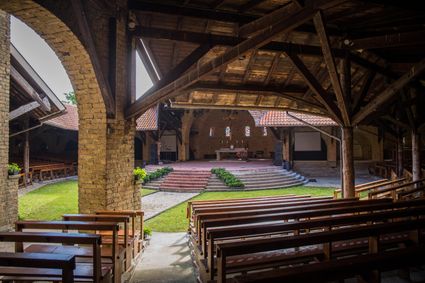
Vanaf de brug bij het Keerpunt heb je prachtig zicht op het oude stadhuis uit 1607. Een plaatje!
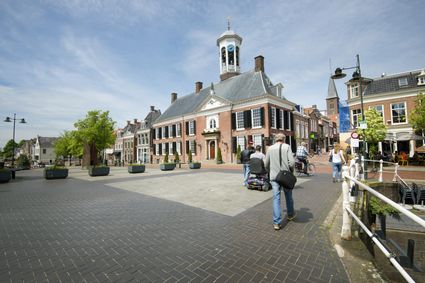
De Sint-Bonifatiuskerk is een rooms-katholieke kerk in de binnenstad van Dokkum. Het rijksmonument werd gebouwd in 1871.
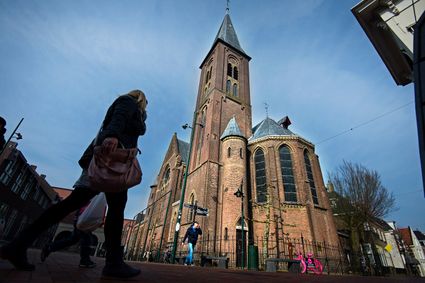
Wil je in Middeleeuwse sferen komen? Bezoek dan het bijzondere kerkje op de terp van Jannum. Het lijkt wel of de tijd hier heel lang heeft stilgestaan.
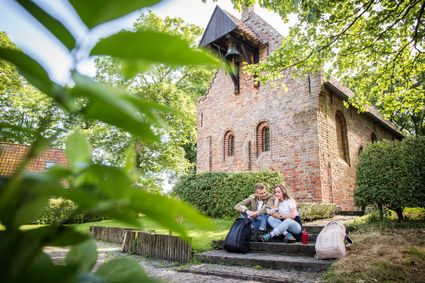
De stokoude 12e eeuwse kerk ligt middenin het dorp op een terprest, die dateert uit de IJzertijd. Vandaag de dag wordt de kerk verhuurd aan beeldende kunstenaars die hier geïnspireerd raken.
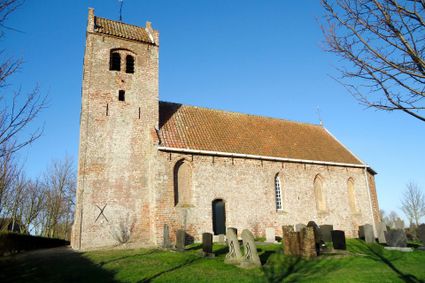
Harsta State in Hegebeintum is een oude Friese state met een mooie landschapstuin met stinzenflora in het noorden van Friesland. De tuin en een gedeelte van het huis zijn opengesteld voor het publiek.
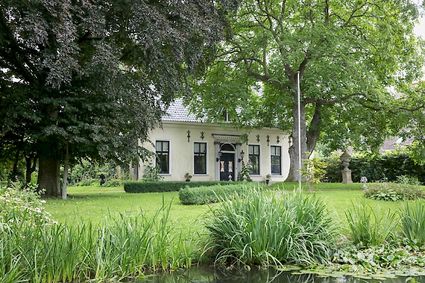
De terp van Hegebeintum is met 9 meter de hoogte terp van Nederland. Op de terp ligt een schilderachtig Romaans kerkje uit de 12e eeuw. Binnen hangt een rijke adellijke collectie rouwborden.
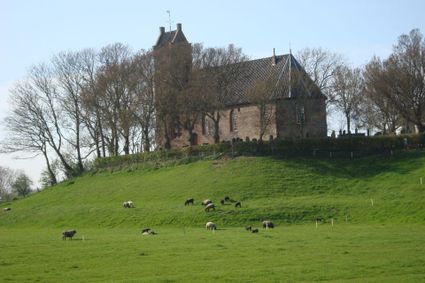
Waypoint walk 77
Ferwert
Navigate to endpoint
Ferwert
Navigate to endpoint